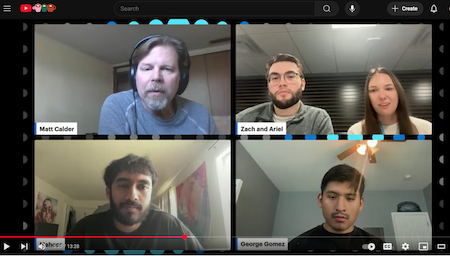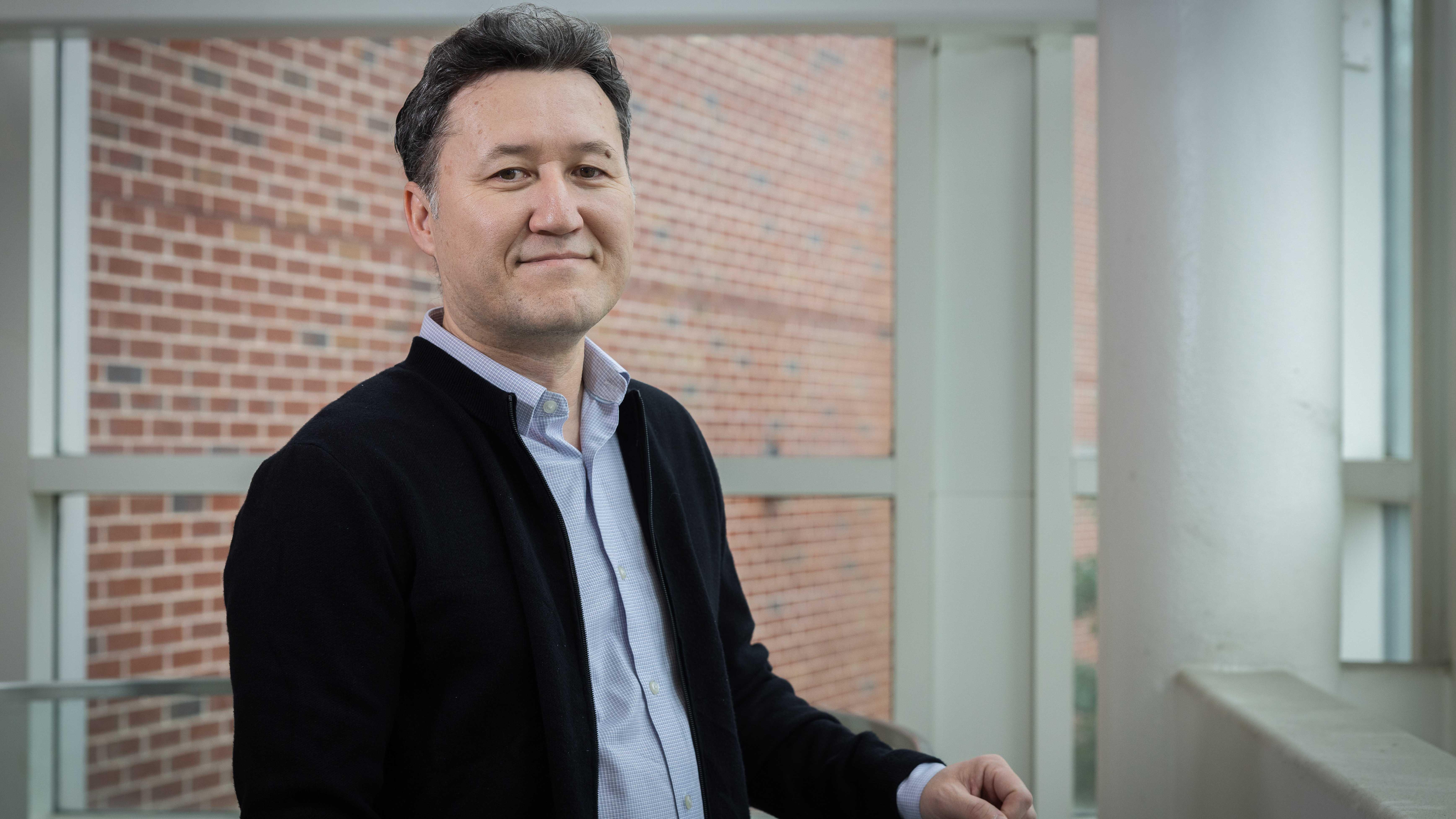
OMSCS Team Takes Entrepreneurial Tack to Win $10,000 in Microsoft Azure Challenge
A team of Georgia Tech graduate students is using artificial intelligence (AI) to help people with disabilities find their dream jobs.
Searching for the right job is stressful for most, but it can be overwhelming for people with disabilities. However, using an innovative approach, the student entrepreneurs created a customizable AI-powered "job coach" that connects people with accessible employment opportunities.
OMSCS students George Gomez, Ariel Magyar, Zachary Patrignani, and Maheer Sayeed created Interstellar Jobs as their entry for the March 2025 Microsoft Azure Innovation Challenge. The team beat over 70 international entries to secure first place and $10,000.

Interstellar Jobs uses information about job seekers' disabilities, job preferences, and other personal details to provide detailed coaching tips for specific jobs. The tips let job seekers know if they're a good fit for the position, what challenges they can expect, and what they can do to manage these challenges successfully.
The challenge, co-sponsored by TechBridge, required teams to create a functional proof of concept within a tight timeframe using AI, analytics, networking, and other Microsoft Azure Web Services.
Selecting which services to use was the starting point for most teams. In fact, Sayeed says most of the competition tried to use as many Azure services as possible for their projects.
"We didn't do that. We kept it simple," said Sayeed.
"Our mindset going into the challenge was that we'd find the problem first, and then we would look at the services we would use."
Their entrepreneurial approach led the team to develop Interstellar Jobs using just three Azure services. As an example of their approach, the team faced the challenge of addressing specific disabilities in relation to thousands of job listings.
Developers usually depend on drop-down menus when presenting an extensive list of options. However, this method might not cover all disabilities or could use outdated or overly broad language. It also wouldn't account for people with multiple or nuanced disabilities that don't fit neatly into a single category.
The Interstellar Jobs team opted for a blank field for users to list their disabilities.
"We kept it very open-ended for our users," said Sayeed.
The team used OpenAI Service to 'clean' entries on the backend, regardless of what users wrote in the blank field. This method ensures that users can always get a structured and actionable response from Interstellar Jobs.
"As a user, not having to pick from a drop-down menu just feels good," said Matt Calder, senior product marketing manager at Microsoft.
Calder hosts Microsoft DevRadio and recently interviewed the Interstellar Jobs team. "I like how your approach changes how people interact with the whole system. If you make something really usable, it's going to be accessible as well," said Calder.
Despite its success, the team has no immediate plans to expand Interstellar Jobs. Each member balances a full-time job and their studies in Georgia Tech's Online Master of Science in Computer Science (OMSCS) program.
"We gained so much about cloud development and Azure Web Services from the experience," said Sayeed. "We also learned the value of AI in these applications."


